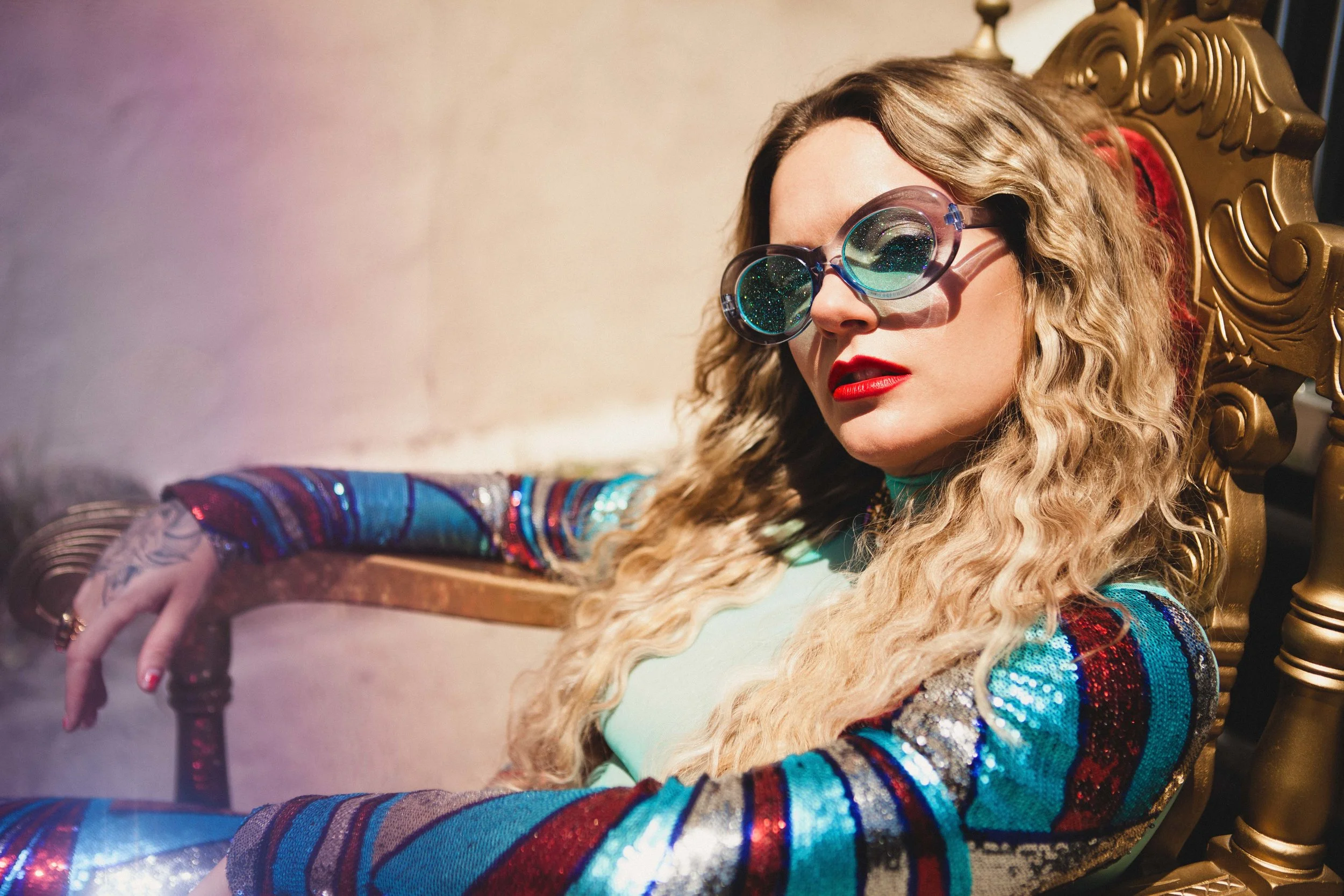Alexandra Savoir
Hailing from Portland, Oregon, singer-songwriter Alexandra Savior’s debut album, ‘Belladonna of Sadness’ [Columbia Records] was finally released in April this year, despite essentially being completed two years ago when she was just 19.
Co-written by Alex Turner of The Arctic Monkeys and The Last Shadow Puppets and produced by James Ford [HAIM, Florence + The Machine], the album features Savior’s slinky, dreamy vocals paired with prominent bass lines to make a record that sounds like velvet feels.
Turner’s influence is undeniable on the record. Fans of his past work will recognize his signature style permeating through the album. His involvement has certainly raised Savior’s profile, something that the up-and-coming artist has struggled with.
“At the beginning I don’t think I really understood what [the collaboration] was going to mean,” Savior says. “I never expected that we were going to be so involved with the record together -- I started to have a panic, realising that it was really gonna change my life.”
Besides the fact that the musical union between Turner and Savior was rather inorganic [they were introduced by their record labels] Savior says that the resulting writing relationship was quite natural. All of the songs have a personal story behind them, she tells us. “There’s some character play in there but it’s more about an aesthetic that I think I was sort of envisioning.”
Although she categorizes her sound as technically pop, Savior is keen not to be labelled or placed in any particular box - a sentiment she applies to most aspects of her life. Instead, she hopes that people will interpret what they wish when they hear her music.
Having started out in the music industry at the age of 17 when she moved to LA and was signed to Columbia, Savior, despite her subdued demeanor, is under no illusion about the industry she’s in, previously calling it “total bullshit” in an interview last fall. The result is a refreshing openness; “I want to be seen as strong but I also don’t wanna hide my challenges that I face,” she says. “People kinda write you off -- not being taken seriously is an issue.”
In the constantly changing and competitive music industry, many artists change their style to stay relevant (see Coldplay; Taylor Swift). However, Savior doesn’t feel that artists should change to accommodate what is popular, instead letting their evolution stem from natural causes. “I think you really change in a personal way and obviously every artist is going to evolve, but there should be no outside force that is motivating that.”
Savior’s end goal, she says, is ultimately to be recognized as a writer and a creator. “I was so young when I made this record that I feel I really did give a lot of my power away. I would like to make something now that is completely my own and whether or not people think it’s good, just knowing that it is mine is what matters.”
Savior discusses how she struggles with certain aspects of being a musician in the digital age, especially self-promotion online. “It feels a little bit dirty and inauthentic,” she says. “You can get really lost.”
“It’s very easy to lose your identity when there’s so much expected of you and rules in terms of advertising yourself.”
One of Savior’s main concerns about her growing fame is her physical, mental and emotional health. “When I first started singing, it was debilitating how emotionally exhausted I was,” the singer recounts. She wanted to give emotionally honest performances but was concerned about the effect it would have on her internally to relive the old memories that inspired the songs. In order to preserve her emotional well-being, Savior uses visualization exercises, explained as “moving art; almost like a movie in my head of what the song now means to me; not involving the different memories, but more involving colors.”
“I’m quite a homebody. I love to travel to new places and perform, but this lifestyle is very unrealistic,” Savior says, discussing how after the adrenaline rush of performing, she finds it hard to switch off.
“That comedown is real - it’s really hard to deal with and that’s definitely the biggest challenge of this whole thing.”
Written by Aimee Phillips
Photography by Eliot Lee Hazel






